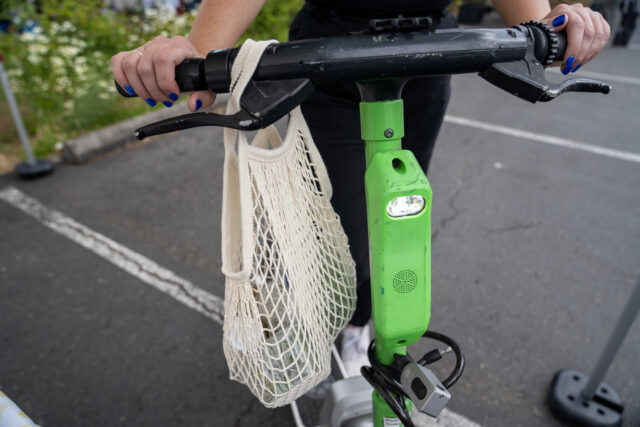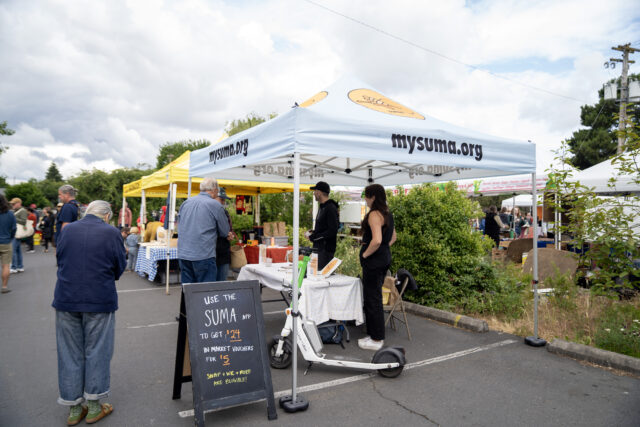How Technology is Connecting Shared Micromobility and Food Access
by Odochi Akwani, Writer and Content Manager
September 11, 2024
Portland-based app suma offers free rides and food vouchers to frontline communities.

suma is a bilingual commerce app helping low-income people, people of color, adults living with a disability, and other frontline communities access subsidized shared micromobility trips in addition to other essential expenses and services. What began as an anti-poverty project in November 2022 to see if technology could help community members save money on environmental goods and services, suma has since connected hundreds of Portland residents to affordable micromobility services and farmer’s market products.
“It’s above and beyond your average nonprofit’s ability to engage with micromobility. We’re building an entire app around this,” says Momoko Saunders, suma’s vendor manager. “We have software developers on our team so we’re able to make sure that it’s a smooth interaction and a private interaction for people, and that is a huge concern for the community that we’ve talked with.”
According to Jacqueline Gromley, suma’s communications driver, frontline communities face numerous barriers including cost, privacy concerns, and inaccessible payment options that make it difficult to utilize subsidized services. suma confirms user eligibility through partner organizations such as affordable housing providers and food pantries.
To continue their mission to create platforms for digital organizing, enterprise, and justice, suma applied for the latest BBSP mini-grant round earlier this March. In June, it was awarded a grant to support the suma Summer Special, a program that runs throughout Portland’s farmer’s market season.
To recruit new users at local farmer’s markets, current suma app users set up a table to conduct one-on-one scooter training and education on micromobility, and demonstrate how the app integrates with the micromobility service Lime to offer users free 30-minute rides.

suma users automatically qualify for Lime Access, Lime’s discounted ride program, and they are not required to share any debit or credit card information to use the service.
“We’re in the works of figuring out how we can get more data, but I think we just always tread very lightly because our main concern is always privacy because we know that’s a concern of getting folks to use any kind of technology in frontline communities,” says Gromley.
According to Gromley, in a user survey conducted by suma last December, 93% of users said they would like to see deals to save money on groceries and 66% of users noted interest in deals on transportation.
Through the new program, suma is connecting these two vital services while helping users build SMM routines by encouraging taking a free ride to one of the farmer’s markets where they can redeem food vouchers. Through suma, first-time buyers receive $24 to spend at farmer’s markets after loading $5 into their suma wallet, with suma matching returning buyers one-to-one up to $30 in vouchers per visit.
“We want to give people access to transportation because that’s what they’re asking for, but also let’s incorporate what they want most, which is food,” says Gromley.
In the future, suma hopes to increase their offerings and micromobility providers for those most in need, making the app a one-stop shop.
